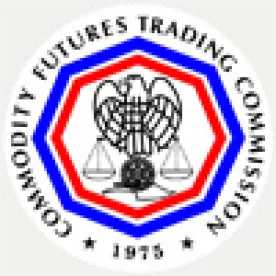In an effort to increase awareness and attention by regulated entities, the CFTC’s divisions of Market Oversight (DMO), Swap Dealer & Intermediary Oversight (DSIO), and Clearing & Risk (DCR) announced their 2019 examination priorities. This marks the first time that the agency has published division examination priorities, and Chairman Giancarolo commended CFTC leadership and staff for their work in bringing additional transparency into the CFTC’s agenda.
DMO Priorities
Tasked with oversight of trade execution facilities, DMO focuses its examination priorities on designated contract markets (DCMs) and swap execution facilities (SEFs). DMO’s Compliance Branch conducts examinations of DCMs to monitor their compliance with the Commodity Exchange Act and CFTC regulations. Throughout 2018 the Compliance Branch completed a review of 11 DCM’s self-regulatory operations. Based on this review, and feedback from the DCM staff, the division identified the following topics for in-depth examination in 2019:
- cryptocurrency surveillance practices;
- surveillance for disruptive trading (including DCMs’ rules, surveillance practices, investigations, and disciplinary cases);
- trade surveillance practices (selected elements);
- block trade surveillance practices;
- market surveillance practices (selected elements);
- real-time market monitoring practices;
- practices around market maker and trading incentive programs; and
- DCMs’ relationships with and services received from regulatory service providers.
While SEFs will not be subject to 2019 examinations, given the pending regulatory changes to Part 37 rules, DMO’s Compliance Branch will conduct regulatory consultations with a number of SEFs and begin designing a SEF examination program.
According to the DMO, most of the nation’s registered DCM’s can expect to undergo at least one examination during the course of 2019. Additionally, the CFTC anticipates regular communication with DCM’s, including quarterly calls with large and medium volume DCM’s, and bi-annual calls for smaller exchanges. These calls will further the Compliance Branch’s goals of effective communication with regulated entities. Finally, the Compliance Branch will seek to identify industry best practices through comparative examinations of DCM’s. DMO will look to share these model practices with other DCM’s, to the extent it will not violate each DCM’s confidentiality.
(See DMO 2019 Examination Priorities)
DSIO Priorities
Responsible for overseeing the registration and compliance of intermediaries, swap dealers, and major swap participants, DSIO will focus its 2019 examination priorities on the protection of customer funds. The DSIO exams will continue to monitor the activities of CFTC registrations through the review of, notices, risk management programs, financial statement filings, risk exposure reports, risk assessment reports, and chief compliance officer annual reports. In 2019, CFTC-registered intermediaries can expect the DSIO to additionally focus on:
- withdrawal of residual interest from customer accounts;
- accepted forms of non-cash margin;
- compliance with segregation requirements;
- FCM use of customer depositories;
- FCM customer account documentation; and
- SD/MSP relationships with third-party vendors.
DCR Priorities
DCR is responsible for the oversight of derivative clearing organizations (DCOs), including those that have been designated as systemically important by the Financial Stability Oversight Council, and performs examinations of systemically important DCOs in consultation with the Board of Governors of the Federal Reserve.
DCR’s primary goal of the examination process is to determine areas of weakness or non-compliance in activities that are critical to safe and efficient clearing. The scope and methodology for the examinations are risk-based, and tailored to individual DCOs and the products they clear. Examinations will look to assess the resilience and maturity of DCOs by reviewing its financial resources, risk management, system safeguards and cyber-security policies, practices and procedures.




 />i
/>i
